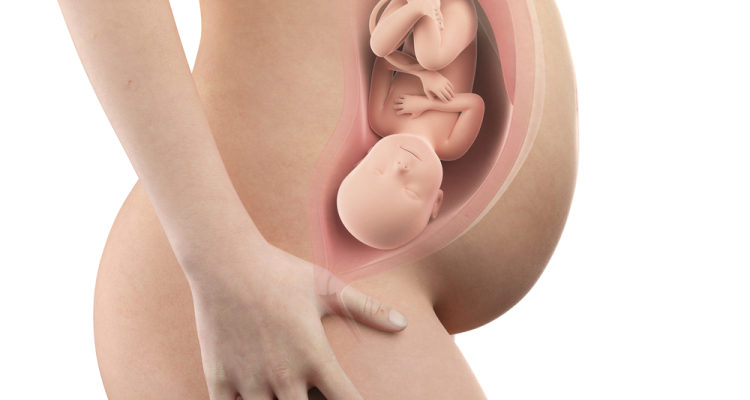
Main content:
Development of 41 weeks fetus
Maternal body changes at 41 weeks of gestation
Doctor's advice on 41 week pregnancy
Maternal and fetal health at 41 weeks
Development of 41 weeks fetus
41 weeks fetus develop like?
Baby is now as big as a jackfruit, a little longer than 50 cm and can weigh nearly 3.6kg. Because the mother's womb gets cramped more and more, the baby cannot stay inside the mother forever. Most doctors won't let moms wait more than 2 weeks after the expected birth date, because that increases the risk of complications for both mother and baby.
Babies born at 42 weeks and later have dry, chapped, flaky and wrinkled skin; nails are long, hair and hair are bushy, with little sebum surrounding the body. The baby looks malnourished, the fat layer under the skin is thin.
Maternal body changes at 41 weeks of gestation
How does the mother's body change?
The fetus is now 41 weeks old. It's hard not to feel anxious that the last days are coming and going and mom is still pregnant (especially as family members and friends keep calling to check on her condition). But don't fret, I won't be pregnant forever. It is best if you will push to deliver this week, otherwise you will get a labor stimulant injection in week 42 or sooner if you or your baby is having problems.
What are the things you need to pay attention to?
About 5-6% of women have a pregnancy lasting up to three weeks or more than expected. Babies born at 42 weeks or later often have dry skin and are often overweight. Waiting long to deliver a baby also increases your risk of developing an infection in the uterus and can endanger the baby or cause the embryo to die.
Doctor's advice on 41 week pregnancy
What should mom discuss with the doctor?
Your doctor will talk to you about an injection to induce labor if your baby is not born next week or sooner if any problems are noticed. Mostly by the 41st week of pregnancy, the doctor won't allow you to wait more than two weeks after the due date because that puts the mother and baby in a high risk situation for complications.
What tests do you need to know?
Your doctor will check to choose the method of injection to stimulate labor and this will depend on the condition of your cervix. If your mother's cervix is not starting to soften, thin, or dilate, this is not the right time. In that case, the doctor will use hormonal methods or mechanical methods to ripen the mother's cervix before the injection to stimulate labor. Depending on the mother's situation and the development of the fetus , the process may include removing or breaking the mother's amniotic membrane, or using drugs such as oxytocin to initiate contractions. If these and other methods don't work, you'll have a cesarean section.
Maternal and fetal health at 41 weeks
What do you need to know to ensure safety during pregnancy?
1. Wash baby clothes
Mothers can wash baby clothes before the baby is born like clothes, blankets and other things that can come into contact with the baby's skin. This is not essential, but experts always recommend that mothers should wash them before babies put them on. The reason for this is that the material of the new clothes will still be quite stiff, while the baby's skin is quite sensitive and as a result wearing new clothes will make the baby look so cute that the mother will hug. grips the baby and irritates her young skin.
2. Late delivery
There's not much you can do in the meantime if your baby is born late at 41 weeks. Other ways (like herbal supplements, nipple stimulation and castor oil) can help you in labor but They can bring deadly contractions and are dangerous for the baby and extremely painful for the mother. Don't try anything without your doctor's advice. Most doctors will advise mothers to inject stimulants at 41 or 42 weeks, to end the early pregnancy for mother and baby.












